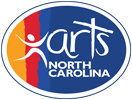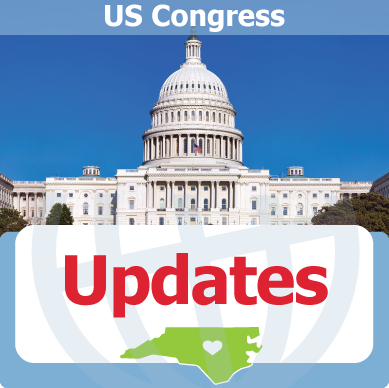HEROES Act vs. HEALS Act Negotiations, Updated Federal Laws and Programs, and Bills to Watch in Congress
| Arts NC Priorities | HEROES Act | HEALS Act |
|---|---|---|
| State and Local Funding | – $875 Billion – $500B State, $375B Local – Can be used for gov. lost revenue | – No Funding – Expands use of CARES Act Coronavirus Relief Fund – 25% of CRF for government lost revenue – If 25% of CRF allocated to smaller governments |
| 2nd Round of Payroll Protection Program | – Not included – Not priority when bill passed in May – Bipartisan support in late July | – $190 Billion – Must show a 50% loss for a Quarter: 2019 vs. 2020 – Must have less than 300 employees – Loan equal to 2.5 months of payroll – Forgivable expenses incurred over period of the 8 weeks that borrower prefers – Up to 40% of forgivable expenses can be non-payroll costs (rent, utilities, etc.) |
| Extend Federal Unemployment | Extends FPUC ($600) thru Jan. 31, 2021 $600 + State $350 = $950 in NC (if made $700, you get $950) | Cuts FPUC to $200 until October 5th when States calculate a benefit of 70% of avg. wages and FPUC adds up to $500 to State benefit. – Pre-Oct. 5th: State $350 + $200 =up to $550 in NC – Post-Oct 5th: State $350 + Up to $500 =up to $850 in NC – (If you made $700, you get $550 then $490 in Oct.) – (If you made $1215+ you get $550 then $850 in Oct.) – FPUC would expire December 31st – States can get waiver if their system can’t calculate 70% by Oct., and instead just provide $200 FPUC through Dec. 31st |
| Unemployment Self-Insured | 50% of self-insured nonprofit costs covered (not reimbursed) | 75% of self-insured nonprofit costs covered |
| National Endowment for the Arts and Other Agencies | NEA: $10 Million, NEH: $10 Million, IMLS: $5 Million | CPB: $175 Million Liability Protection |
| Liability Protection | None- Dems want OSHA to regulate | – Protects businesses, nonprofits, schools, etc. if guidelines reasonably followed – Protects health care and manufacturing – Protects employers from worker claims |
| Individual Stimulus | $1,200 individual, $2,400 file jointly, $1,200 per dependent, up to $6,000 per household | $1,200 individual, $2,400 file jointly, $500 per dependent |
COVID-19 Phase IV Relief Negotiations

On Monday July 27th, Senate Republicans unveiled the details of their Phase IV COVID-19 relief legislation, the Health, Economic Assistance, Liability protection, and Schools (HEALS) Act. Negotiation can now begin with House Democrats, who passed their Phase IV bill on May 15th, the Health & Economic Recovery Omnibus Emergency Solutions (HEROES) Act. Arts NC has been communicating with our Congressional delegation to stress the need for the arts sector in this unprecedented time. We are glad to see many of our priorities represented in both proposals and will continue to work with Congress on behalf of the NC arts sector. Remember, none of this is law. This is just the beginning of a negotiation.
While the HEROES Act extended the $600 weekly payment enhancements from the Federal Pandemic Unemployment Compensation through January 2021, the HEALS Act reduces that payment to $200 per week while asking the states update their systems by October 1st to calculate benefits differently. Under the new system the federal government would pay up to $500 so that the total weekly benefit would be equal to 70% of the claimant’s average wages. This would put significantly less money into the hands of the thousands of North Carolina artists and arts workers that are unemployed as a result of COVID-19.
While the HEALS Act did not provide any of the $875 Billion for State and Local Government Relief Funding that was included in the HEROES Act, it did provide some flexibility on how CARES Act money could be spent. It allows up to 25% of that funding to be used to replace a State’s lost revenue provided at least 25% has been allocated to smaller governments, such as counties and cities, a criteria North Carolina does not meet.
The HEALS Act does create a second round of Payroll Protection Program (PPP) loans for those organizations that have already received one. Businesses can receive another loan equal to 2.5 months of payroll if they have less than 300 employees and can show a 50% loss in a single quarter of 2020, compared to 2019. Loans are forgivable like the first PPP, with up to 40% able to be spent on non-payroll expenses such as rent and utilities.
Senate Republican had long signaled that COVID-19 Liability Protection would be a key piece of their bill. The HEALS Act includes protections for businesses, nonprofits, schools, etc. that reasonably follow state and local health guidelines. It also provides protection for health care providers and manufacturers of equipment. Perhaps most controversially it provides employers protection form workers’ claims.
The chart above outlines and compares the HEROES and HEALS Acts. We will continue to monitor the negotiations, advocate on behalf of the arts, and keep you informed of the latest developments.
Arts NC Federal Priorities
Below are some key priorities Arts North Carolina has been addressing with North Carolina’s Congressional delegation in support of the arts sector statewide.
- State and Local Relief Funding that can replace lost revenue
- 2nd Round of PPP for Businesses Most in Need
- Extend FPUC ($600) through Dec. 31, 2020 and beyond
- Mixed Earner Pandemic Unemployment Assistance Act
- Incentivize Charitable Giving through Tax Policy
- Support for Cultural Agencies (NEA, NEH, IMLS, CPB, etc.)
New Federal Laws & Programs
Below are some key laws and program updates that have taken effect over the last several months and alter how the Coronavirus Aid, Relief, and Economic Security (CARES) Act is administered.
Payroll Protection Flexibility Act enacted June 5th
- PPP Loan forgivable expense period now 8 OR 24 weeks
- Do not need to wait for entire 24 weeks to file for forgiveness
- 40% of forgivable expenses can be non-payroll (up from 25%)
Protecting Nonprofits from Catastrophic Cash Flow Strain Act enacted August 3rd
- CARES Act reimbursed 50% self-insured Unemployment costs
- Nonprofits had to pay 100%, then be reimbursed by government
- Now nonprofits only have to pay 50% of the unemployment costs
- NC covers the other 50% for COVID-19 claims (not in every state)
Federal Reserve Main Street Lending Program for Nonprofits as of July 17th
- Non-forgivable loans equal to average Quarter from 2019
- Minimum: $250,000, Maximum: $35 Million (LIBOR +3%)
- At least 10 employees and 5 years in business
- Not ideal for most all arts nonprofits
Other Arts Related Federal Legislation
Below are several pieces of legislation that have been filed in Congress that would have a significant impact on the arts. These bills may never become law, however the favorable provisions they contain may help to shape other COVID-19 legislation. Arts NC will continue to monitor these bills and their support of the arts sector.
Reviving the Economy Sustainably Towards A Recovery in Twenty-twenty (RESTART) Act
- 7-year LOANS, capped at 45% of 2019 gross receipts up to $12M
- Employment cap of 5,000, streamlined for less than 500 employees
- Allows up to 90% loan forgiveness for businesses with fewer than 500 Full Time Equivalent Employees (FTEs) and high revenue loss.
- Loans are forgivable based on formula of losses vs. expenses.
- Favorable interest rates (Year 1-2: 2%-4%, Year 3-7: AFR based)
- Nonprofits loans up to 10 years; lower rate OR partial forgiveness
- Use of Funds: Total payroll (up to $100k per employee), benefits, rent, utilities, mortgage, personal protective equipment
- No requirement to increase staffing beyond what businesses need
- Forgiveness formula penalizes nonprofits for donations
- Specifically designed for Independent Performance Venues ($10B)
- Advocacy by: National Independent Venue Association (NIVA) #SaveOurStages
- Must have fewer than 500 FTEs, not be publicly traded companies, and not own or operate venues in more than 1 country or 10 states.
- GRANTS capped at 45% of 2019 gross receipts up to $12 million
- Grant funding may be used for expenses incurred between March 1, 2020 and ending on December 31, 2020.
- Use of Funds: Payroll, benefits, rent, utilities, mortgages, PPE, maintenance, administrative costs, taxes, and meeting guidelines.
- A recipient is eligible for a supplemental grant equal to 50% of the initial grant if the entity is still experiencing 80% or greater revenue loss on December 1, 2020.
Culture Arts Libraries Museums Emergency Relief (CALMER) Act
- Provides additional emergency relief funding for NEA, NEH, and IMLS grant programs created in CARES Act:
- $4 billion in relief funds through National Endowment for the Arts
- $4 billion in relief funds through National Endowment for the Humanities
- $6 billion in relief funds through Institute of Museum & Library Sciences
- Expands NEA and NEH grant eligibility to ALL arts nonprofit organizations.
- Removes the $300 charitable deduction cap implemented in CARES and allows taxpayers to claim the deduction on 2019, 2020, and 2021 taxes.
- Extends the suspension of the 50%-of-adjusted-gross-income (AGI) limitation for individuals and the 25% AGI limitation for corporations through 2021.
- Gives 501(c)(3) nonprofits a payroll tax holiday for 2020.
- Adjusts Main Street Lending Program (MSLP) for nonprofits to give loan forgiveness to 501(c)(3) nonprofits with fewer than 500 employees and eliminate the minimum loan size for nonprofits so nonprofits don’t have to borrow more than they need.


